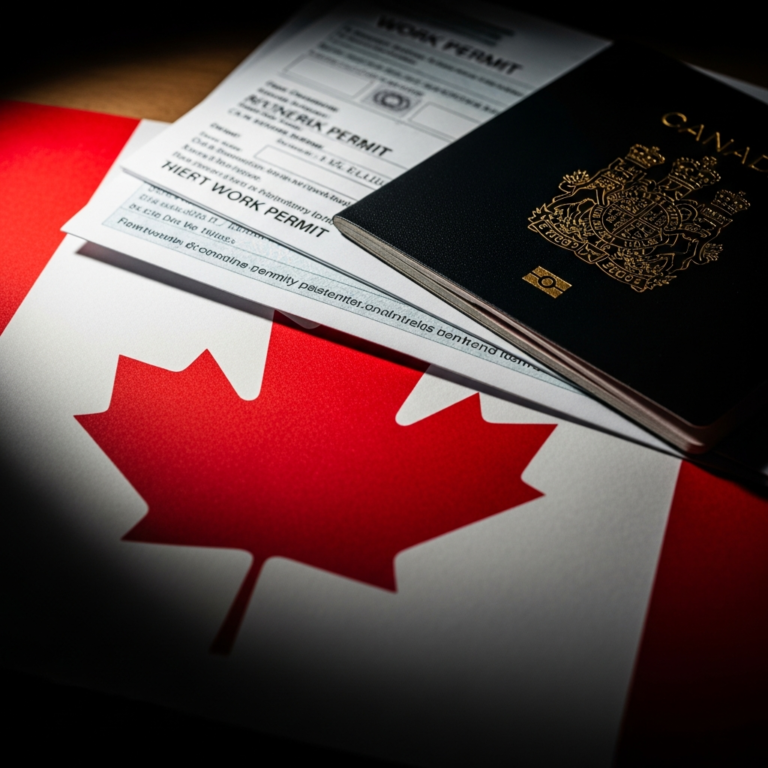Key Highlights: How to Apply for Canadian Citizenship Over 55
Here are the main things you need to know before you apply for Canadian citizenship over 55:
- Eligibility for Citizenship Over 55: To get Canadian citizenship, you have to demonstrate adequate knowledge of Canada as a permanent resident. You need to live in Canada at least three years out of the last five before your application date, and you must have filed your taxes under the Income Tax Act.
- Citizenship Test Exemption Age: If you are 55 or older and meet the citizenship requirements, you do not have to take the citizenship test.
- Language Skills: When you are 55 or over, you do not need to show any proof for waiver request regarding language skills or language requirements proficiency.
- Required Documents: Your Canadian citizenship application should have copies of your passport, proof that you live in Canada, and two other ID documents.
- Application Process: You can fill out the citizenship application either online or send it by mail. Pay your fees, and then you will get an invitation to the citizenship ceremony.
Introduction
Learning how to apply for Canadian citizenship over 55 is an important step for people who want to settle down in Canada. If you are a permanent resident, you already get many good things, but becoming a citizen will give you extra rights and more comfort. This guide is for those who are aged 55 and above, and it covers the special rules and things you need to know. When you finish your citizenship application, you finish a big part of your time moving here, and you can take part in everything Canadian life offers.
How to Apply for Canadian Citizenship Over 55
Navigating the application process for Canadian citizenship over 55 years of age can seem complicated, but breaking it down into small steps makes it easier. Start by checking your eligibility, including if you are a current or former Canadian Armed Forces member, and follow the specific rules for each part of the process. This preparation helps you fill out your application correctly, avoiding delays. Whether you apply online (opens in new tab) or by mail, understanding the requirements for your age group is crucial. This guide provides everything you need, from gathering documents to what to expect after submitting your application.
Step 1 – Check If You’re Eligible
Here are the key eligibility criteria for Canadian citizenship if you are over 55, shown in a table for easy reference:
Requirement | Details |
|---|---|
Permanent Resident Status | You must be a permanent resident or temporary resident of Canada with no unfulfilled conditions relating to your status. |
Physical Presence | Lived in Canada for at least 1,095 days in the last 5 years. |
Income Tax Filing | Filed taxes for at least 3 of the last 5 years. |
Removal Order | Not under a removal order to leave Canada. |
Criminal Record | No unresolved serious criminal issues. |
Language & Knowledge Tests | Not required if you are 55 or older. |
If you meet all these requirements, you can continue with your application. Use the government’s online calculator to check your physical presence days.
Step 2 – Gather Your Documents
Once you confirm your eligibility, gathering the required documents is your next step. Submitting a complete, organized package helps your application process move smoothly. Immigration, Refugees and Citizenship Canada (IRCC) will review your identity, permanent resident status, and your time spent in Canada. You must include clear, colored copies of all documents, ensuring each page is current and easy to read. Missing or incorrect documents can lead to IRCC requesting additional information and delaying your application. The main documents required are:
- Colored copies of every page in your passport(s) or travel documents from the past five years
- Copies of two pieces of personal ID (such as a driver’s license or health card)
- Proof of permanent residency (like your PR card)
- Two identical citizenship photos that meet official requirements
Consent to IRCC checking your tax records is needed. Double-check everything before submitting.
Step 3 – Complete the Application Form
- Gather all your necessary documents before starting the application form.
- The same application form is used for all adults, including those 55 and over; there is no separate process based on age.
- You can complete your Canadian citizenship application online or print out a paper form from the official IRCC website.
- Answer all questions truthfully and accurately; mistakes or missing information can cause delays or refusal of your application.
- Double-check your details names, dates, and physical presence calculation before submitting your application to ensure everything is correct.
Step 4 – Pay the Application Fees
Paying the correct citizenship fees is a crucial step in your application process for the grant of citizenship. For adult applicants (aged 18 and above), the total fee is $630, which consists of a non-refundable $530 processing fee and a $100 Right of Citizenship Fee. If your application is declined, only the Right of Citizenship Fee may be refunded. For the fee amounts, please refer to the fee list.
All payments must be made online via the IRCC website, regardless of whether you apply online or by mail. Once you complete the payment, you will receive an official receipt. Be sure to include this receipt in your application package as proof of payment. Please be aware that failure to pay may result in delays in the processing of your application. See the table below for current fees.
Applicant Type | Processing Fee | Right of Citizenship Fee | Total Fee |
|---|---|---|---|
Adult (18+) | $530 | $100 | $630 |
Minor (Under 18) | $100 | $0 | $100 |
Step 5 – Submit Your Application
- After filling out the forms and paying the fees, you can submit your application online or by mail.
- For online submission, upload all documents and your fee receipt to the IRCC portal; you’ll get a quick confirmation.
- If mailing, send your complete forms, document copies, and fee receipt to the Case Processing Centre in Sydney, Nova Scotia, using tracked mail.
- Review the document checklist carefully; missing items can delay or return your application, so ensure everything is included.
Step 6 – Track Your Application Status
- After submitting your application to the Case Processing Centre, IRCC will review your documents.
- You’ll receive an Acknowledgment of Receipt (AOR) with your unique application number by mail or email.
- Use this number to check your application status online with the government’s official tracker, which displays updates like “in process” or “decision made.”
- Regularly monitoring your status keeps you informed of progress and next steps; usually, contacting IRCC isn’t required as the tracker gives reliable updates.
Step 7 – Wait for Processing
Patience is important while you wait for your citizenship application to be processed. IRCC states that a standard citizenship application takes about 8 months, but this is only an estimate. Processing time can be longer or shorter depending on the minimum processing requirements, number of applications, and the complexity of your case. Make sure your application was complete and correct to avoid delays, as missing details or documents may result in IRCC contacting you for more information or clarifications.
For applicants over 55, processing times are typically similar to those for other adults, although you do not need to take the citizenship test or prove language skills. However, background checks and residency verification including the residency requirement will still take time, so be prepared to wait for the entire process to be completed.
Step 8 – Attend the Oath Ceremony
The last step to get Canadian citizenship is the citizenship ceremony, which is a significant part of Canada’s history. After your application is approved, you will receive a “Notice to Appear,” inviting you to attend the ceremony. If you are over 55, you do not have to take the citizenship test. At the ceremony, you will take the oath of citizenship, promising loyalty to Canada and to follow its laws, which include the rights and responsibilities of citizenship.
Once you say the oath, you officially become a Canadian citizen. To prepare for the citizenship test, it is recommended to study using a citizenship study guide. Afterward, you receive your certificate of Canadian citizenship, which you will need if you wish to get a Canadian passport. Congratulations now you have all the rights and responsibilities of a Canadian citizen.

Common Mistakes Seniors Should Avoid
When you fill out your citizenship application, try to avoid simple mistakes. Little errors, like missing a page or not signing something, can make your application take longer or get sent back to you. If you are a senior, you need to be more careful with some steps.
Watch out for these mistakes:
- Inaccurate Physical Presence Calculation: If you do not count your days in Canada right, this may slow things down. Use the online calculator and check your travel dates one more time.
- Forgetting to Sign Forms: If you forget to sign an application form, they think it is not complete. They will send it back to you.
- Submitting Incomplete Documents: Put in all the required documents with your application form. You need clear photocopies of your ID and passport pages.
- Misunderstanding Exemptions: Seniors do not take the citizenship test. Still, the other rules about physical presence and tax filing must be met.
Following these tips can help make your citizenship application go more smoothly.
Conclusion
In the end, it is important to know how to apply for canadian citizenship over 55 if you are a senior who wants to start a new life in Canada. The steps to become a canadian citizen might look hard at first. But, with the right help and a clear guide, you can get through it. Make sure you know the rules you need to meet. Gather all the papers needed. Also, watch out for simple mistakes that could slow down your application. Places like the USCA Academy give support and help at every step. Use this chance. Take the first step to being a canadian citizen now.
Frequently Asked Questions
1. Do you need to take the Canadian citizenship test or prove language skills if you’re over 55?
No, people who apply for Canadian citizenship and are over 55 do not need to take the citizenship test and do not have to show their language skills in the official languages. According to Canadian law, the citizenship official test exemption age is 55. So, if you are 55 or older when you sign your application for Canadian citizenship, you do not have to take the test.
2. Is dual citizenship allowed or beneficial for seniors in Canada?
Yes, the Canadian government lets people have dual citizenship, which is good for seniors. You can keep your passport from Canada and still have citizenship in your home country, ensuring you maintain your citizenship status. It helps when you travel and also makes it easy to take care of things in both countries.
3. How can seniors get help or legal advice when applying for Canadian citizenship?
Seniors can get help by working with a licensed immigration consultant or lawyer in good standing. There are groups that focus on immigration, such as USCA Academy, that can guide you through your canadian citizenship application. They also make sure your canadian citizenship application is filled out right and be sure everything is done. These experts help you avoid mistakes and make the process smoother for your canadian citizenship.
4. What should I do if I made a mistake after submitting my application?
If you find out that you made a mistake after you send in your application, you need to tell IRCC right away and check the status of your application. Go to their website and use the web form to let them know. Give the right information with your application number. This helps to make sure the case processing centre gets your update.









